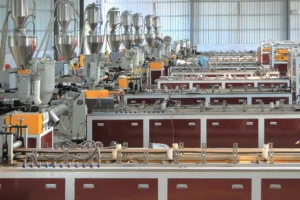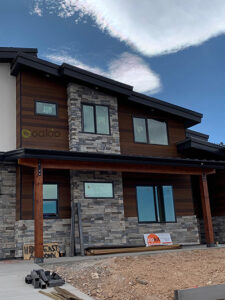Pros and Cons of Composite Decking: Is Composite Decking Worth the Money?
Composite wood decking is a type of flooring that consists of three layers: a solid wood or veneer layer on top, a solid wood strip layer in the middle, and a veneer layer at the bottom. It has a tongue-and-groove design that makes it easy to install and fit together. It is commonly used in bedrooms, studies, living rooms and other indoor areas, as it offers a natural and elegant look and feel.
Composite decking has emerged as a popular alternative to traditional wood decking, offering a plethora of advantages. However, it has also many disadvantages. Weighing all the advantages and disadvantages of composite decking, you may ask: is composite decking worth the investment? This article delves into the pros and cons of composite decking, helping you help you decide whether to invest in composite decking based on your needs and preferences.
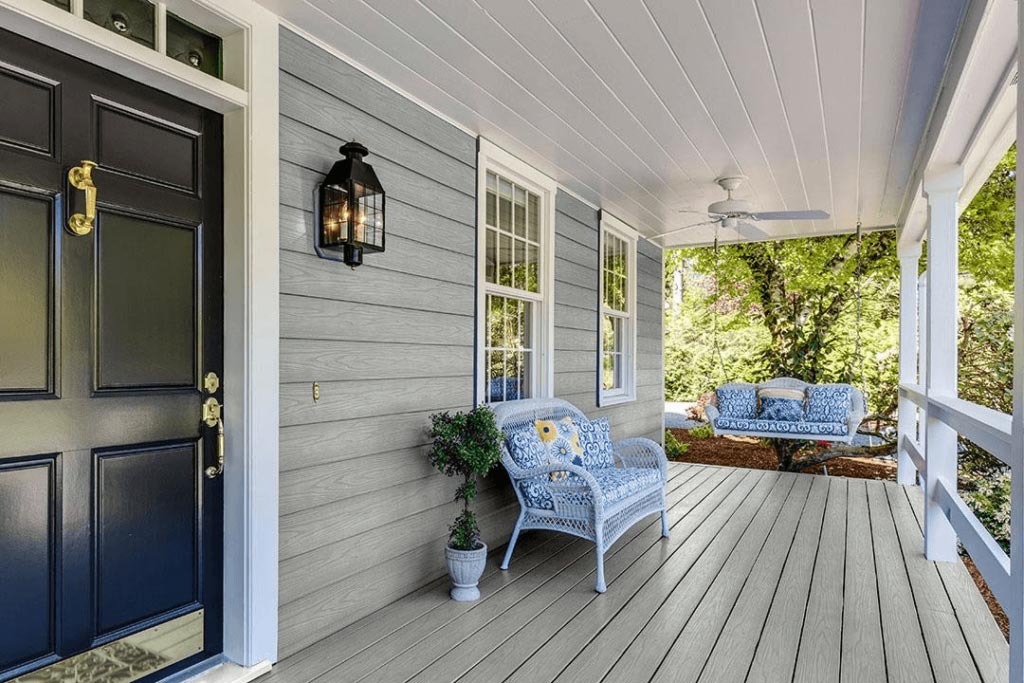
Importance of Exploring the Pros and Cons of Composite Decking
Composite decking is designed to mimic the look and feel of natural wood while offering superior durability and performance.
Composite decking has become a popular choice and stands out as a notable option for homeowners who want to enhance their living space with an affordable, low-maintenance, comfortable and natural, easily-installed, solid and stable option. Offering durability, easy installation, and a natural wood-like appearance, composite decking serves as an appealing and practical alternative. However, alongside its numerous advantages, composite decking comes with certain limitations that necessitate thorough consideration before finalizing a decision. Understanding and gaining insight into the pros and cons of composite decking is pivotal to grasping its array of strengths and limitations, which is essential for anyone considering this option for their flooring needs.
Advantages of Composite Decking
1. Affordable price
Composite decking is cheaper than solid wood decking because it uses less wood and more efficient materials. However, it is still more expensive than composite decking, which is made of synthetic materials.
2. Low maintenance
Composite decking does not require much care if it has a good quality and durable paint finish. However, it is not as resistant to wear and tear as composite decking, which has a protective layer on top. Composite wood decking cannot be sanded and refinished like solid wood decking, because it has multiple layers of glue and wood.
3. Comfortable and natural
Composite decking has the same feel and temperature as solid wood decking, which makes it comfortable and cozy. It also has a natural and elegant appearance, because it uses high-grade wood for the top layer. It is more stable and less prone to warping and cracking than solid wood decking because it has a plywood base layer that provides support and balance.
4. Easy installation
The installation process is simple and that of composite deck is the same as that of composite flooring. It does not hit the floor keel and you just need to make it level. Generally speaking, the installation of 100 square meters can be done by two workers a day, which is much faster than that of solid wood flooring.
5. Solid and stable
Composite decking shares similar qualities with solid wood flooring, offering a comfortable underfoot sensation and thermal properties that provide warmth in the winter and coolness in the summer. Additionally, its surface, crafted from premium wood, mirrors the appearance of top-quality solid wood flooring. This decking also surpasses solid wood in terms of stability.

For those who seek a low-maintenance, solid and stable option, Oakio composite decking is an outstanding option because Oakio decking combines the durability and low-maintenance benefits of composite materials with the natural beauty of wood, ensuring a satisfying and durable decking solution for your home. If you are looking for a decking solution, you can consider this decking brand.
Disadvantages of Composite Decking
After the above discussion of the advantages of composite decking, you may pose the question: what are the disadvantages of composite
1. Less wear-resistant
Composite decking is not as strong and durable as composite decking, which has a hard and scratch-resistant surface. If the paint layer on the top of the composite wood decking is not thick and tough enough, the floor will wear out quickly. Composite decking cannot be repaired or restored like solid wood decking, because it has multiple layers of glue and wood.
2. Higher formaldehyde content
Composite wood decking has more glue and adhesive than solid wood decking, which means it has more formaldehyde and other volatile organic compounds (VOCs). The more layers of composite wood decking, the more glue and formaldehyde it has. This can affect the indoor air quality and health of the occupants. You can find more details in this report on engineered wood products.
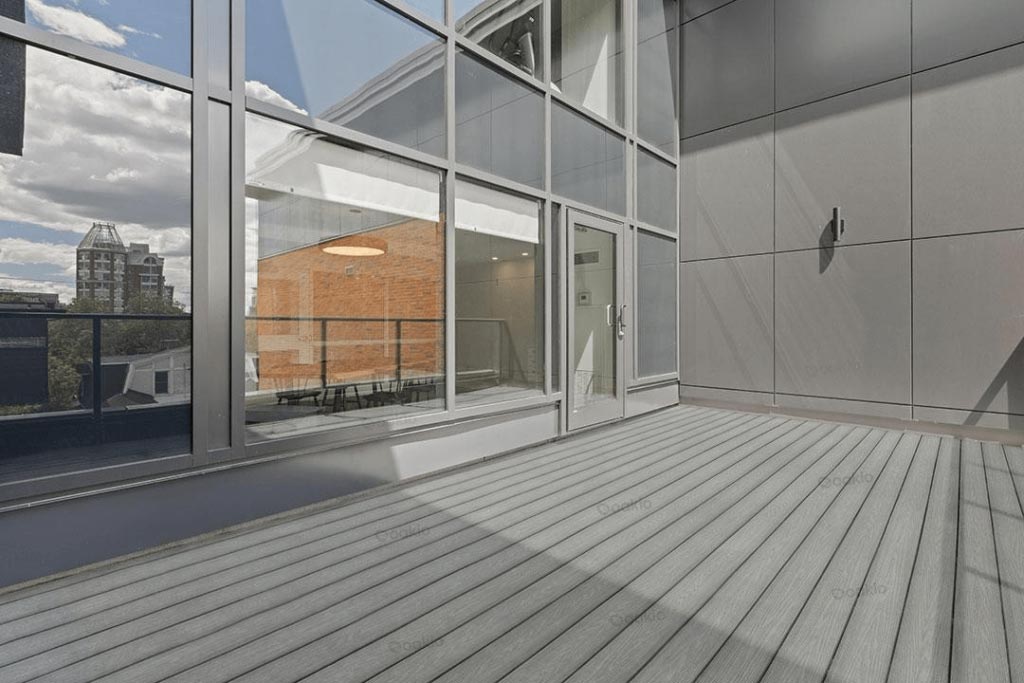
Is Composite Decking Worth It?
Weighing the Pros and Cons of Composite Decking
If you are thinking of upgrading your living space, you may wonder: is composite decking worth it? In evaluating whether composite decking is worth it, one must weigh and balance the pros and cons of composite decking. Composite decking has many advantages over traditional wood decking, but it’s crucial to acknowledge its potential disadvantages.
Before making the decision, it’s important to consider individual preferences, budget constraints, and the specific needs of their outdoor space. For those seeking a durable, visually appealing, and hassle-free decking option, the advantages of composite decking outweigh the drawbacks. It represents an investment that promises longevity, resilience, and aesthetic diversity.
Ultimately, the decision of whether composite decking is worth it depends on individual priorities and budget constraints. For homeowners who prioritize low maintenance, durability, and aesthetic appeal, composite decking may justify the higher cost. However, for those on a tighter budget or who prefer the natural look and feel of wood, traditional wood decking may be a more suitable option.
Maximizing the Value of Your Composite Decking Investment
After weighing the advantages and disadvantages of composite decking, you may choose to invest in composite decking. Hence, it’s time to consider how to maximize the value of your composite decking investment.
To ensure your composite decking investment yields maximum value, consider these insightful tips:
Prioritize Quality: Opt for high-quality composite materials that offer superior durability and longevity.
Seek Professional Installation: Proper installation is crucial to prevent premature wear and tear. Engage experienced deck builders for seamless installation.
Maintain Regularly: Regular cleaning with mild soap and water will maintain the beauty of your composite decking and prevent dirt buildup.
Embrace the Aesthetic: Composite decking offers a wide range of styles and colors. Choose an option that complements your decoration and personal preferences.
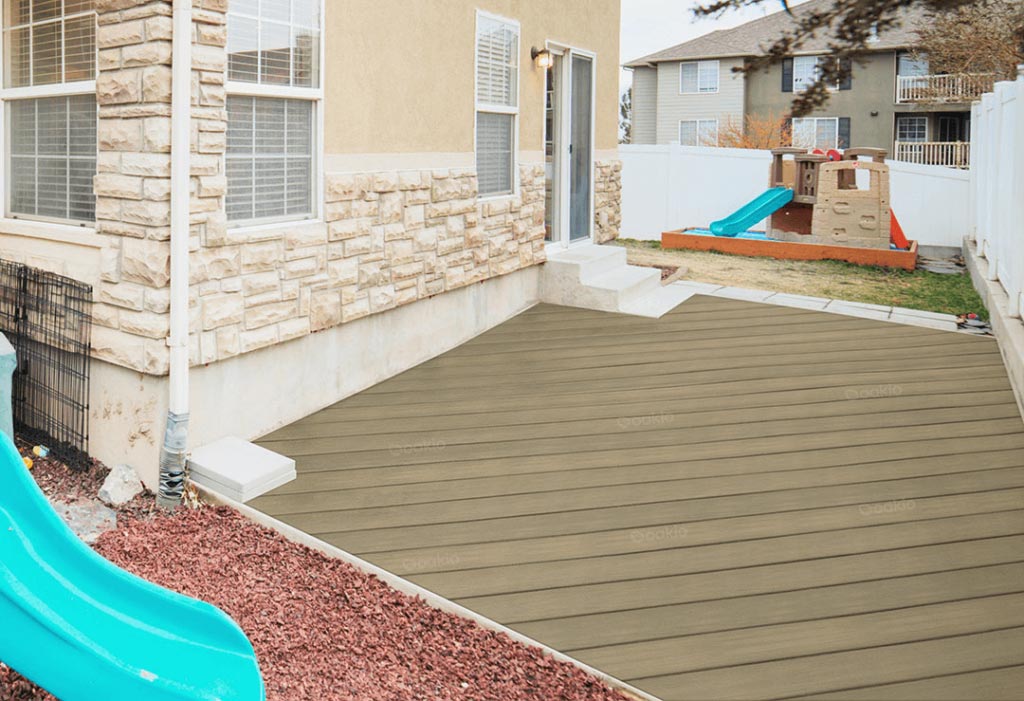
By carefully considering the advantages and disadvantages, balancing the upfront cost against the long-term benefits, and making informed decisions, homeowners can maximize the value of their composite decking investment and enjoy its beauty and resilience for years to come.
Conclusion
Composite decking is a flooring option that has some advantages and disadvantages over other decking materials. It is moderately priced, easy to maintain, comfortable and natural, easily installed, solid and stable, but it is also less wear-resistant and a little toxic than other decking options. You should weigh the pros and cons of composite wood decking before choosing it for your home, and compare it with other decking options, such as solid traditional wood decking.
By weighing the advantages and disadvantages of composite decking against your budget and priorities, you can determine if it’s the right fit for your space. For those seeking a durable, low-maintenance, and aesthetically pleasing option, the benefits may outweigh the drawbacks. Remember, maximizing your investment in composite decking involves prioritizing quality materials, professional installation, regular maintenance, and embracing aesthetic possibilities.
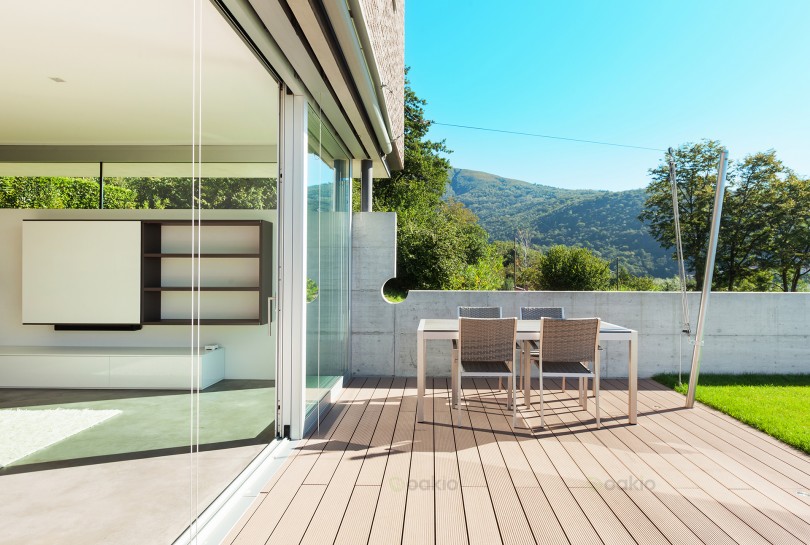
Oakio composite decking offers unique strengths and a lot of advantages. It may be an ideal decking option for you after you weigh all the pros and cons of this brand’s decking products.
Ultimately, the decision is yours. But with this comprehensive guide, you’re well-equipped to determine if composite decking is worth it.
Trending Reading
What Are the Differences Between the WPC Board and PVC Board?
[2024 Update] How Long Does WPC Decking Last?

